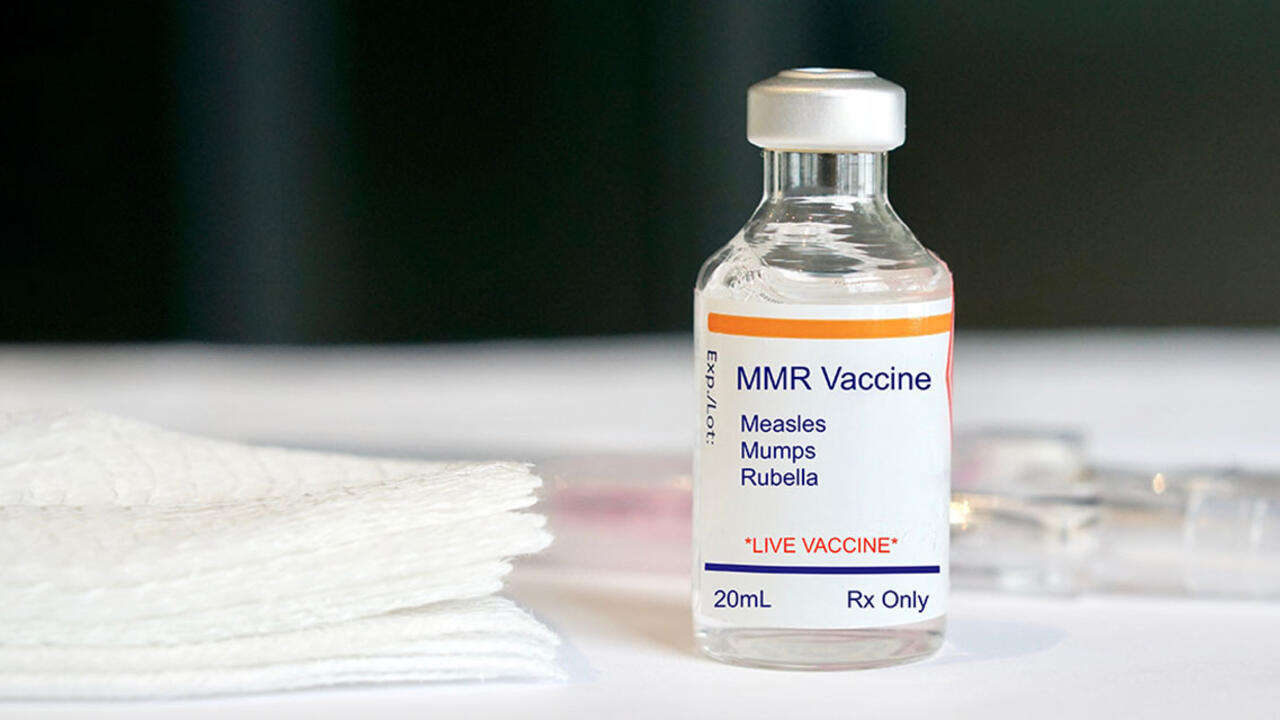Wellesley Professor Discusses Factors Behind Resistance to Measles Vaccinations

As of May 31, the Centers for Disease Control and Prevention had reported 981 cases of measles in 26 states—the largest outbreak since 1994. Jonathan B. Imber, the Jean Glasscock Professor of Sociology at Wellesley and author of Trusting Doctors: The Decline of Moral Authority in American Medicine, studies the moral and ethical foundations of modern medicine and the influence of religious authority on medical practices. Here, he shares his insights on the factors contributing to this outbreak.
Q: In New York, officials recently ordered mandatory immunizations for people who had not received measles vaccines, which has met with resistance in some communities. How can this conflict be resolved?
Jonathan B. Imber: Measles is a highly infectious disease—that is, one infected person can transmit the disease to many others by simply being in their presence. Like other infectious diseases (e.g. mumps, rubella, and, once upon a time, smallpox), vaccination is the surest and most efficient route toward the elimination of their spread to the most vulnerable populations. I think that vaccination is really an altruistic act, because when more people are vaccinated, more people who for specific medical reasons cannot be vaccinated are also protected; this protection is called herd immunity, and in the case of measles, it is best achieved when over 90 percent of people are vaccinated. When we see resistance to vaccination in communities, like in this case with the measles, infectious diseases have a much easier time spreading, and more people are susceptible to the disease.
In the case of some communities in New York City and elsewhere in New York state, the objections to vaccination have overwhelmed public health authorities, who have had to counter a great deal of misinformation accelerated by social media. Community leaders have begun to engage their members to provide more localized interventions that outside authorities have been less effective at achieving, at least thus far. At the same time, a more complicated narrative with respect to these communities suggests that “population density and a community’s social mixing patterns are two critical determinants of whether an outbreak dies out or remains sustained,” as the New York Daily News reported.
Close-knit communities such as these are reported to maintain high-rates of vaccination, but these “social determinants” as they are called (e.g., population density and patterns of gathering together) deserve more attention than simple social shaming. Resistance to vaccination is less an economic problem than a sociological one, which is to say, concerns about autism, objections to the HPV (Human papillomavirus) vaccine, violence in other parts of the world against medical attempts to eradicate polio, and the appeal of other antivaccination claims are a complicated mix of anxieties that have existed since Edward Jenner introduced a smallpox inoculation at the end of the 18th century. Those of us responsible for educating others need to help people make sense of their collective anxieties.
Q: How did public health officials address conflicts like this in the past?
Imber: In the past, infectious childhood diseases for which there are now inexpensive means of prevention resulted in the deaths of millions of children. When smallpox was eradicated in the late 1970s, many public health professionals thought we were on our way to the elimination of infectious diseases on a global scale. They were wrong, alas. This illustrates how new strategies of communication, in particular, are always needed to address a simple fact of life: If you are unaware of the pain and suffering that diseases once inflicted on large numbers of people, you are less likely to react effectively to the reappearance of an illness that had not been seen in any abundance for decades. Many younger physicians had until recently never seen a patient with measles.
Additionally, both socioeconomic status and level of education can sometimes play an important role in vaccination awareness. The MMR vaccine is widely available at no cost, so another social determinant (e.g., level of education) is likely operating and calls for interventions that work for those people. In the case of addressing the many health disparities that poverty reveals, the obligation remains crucially on public health strategies that can improve awareness both specifically about vaccines and more generally about overall health.
Q: What is on the horizon for cases where the interests of public health and medicine collide with free choice?
Imber: There is a difference between “free choice” and “rational choice.” We are “free” to do almost anything, right? But the application of reason to the prevention of disease does not guarantee that people will be reasonable or rational. I think that most resistance to medical innovation, of which vaccination is a spectacular example, implicates certain religious groups more than others; a particularly good explanation is given by Paul Offit in Bad Faith: When Religious Belief Undermines Medicine. On the other hand, the ethical challenge is finding ways in the cases of different infectious diseases that work today.
I sympathize with the many rationalizations people make about protecting those they love. Helicopter and snowplow parents abound. This is the challenge I suspect that is at stake now in the antivaccine troops who march under the banner of protection in a world that appears to them not to be doing a good job at protection. No vaccine is 100 percent safe, even though the worst reactions are treatable without further complications. Yet here we have a classic occasion where possibility trumps probability. Parents, in particular, are most vulnerable to what I have described as “epidemiological anxiety,” that is, the anxiety that you or your child may be the one child in a million who is stricken with an unintended result from an intentionally good act. The anxiety over one article published years ago about MMR and autism echoes down to the present despite all the debunking. Every day, we wake up and walk into a risky world. Vaccination should be celebrated as one of the most effective means to reduce the risks associated with diseases we now know how to prevent.



